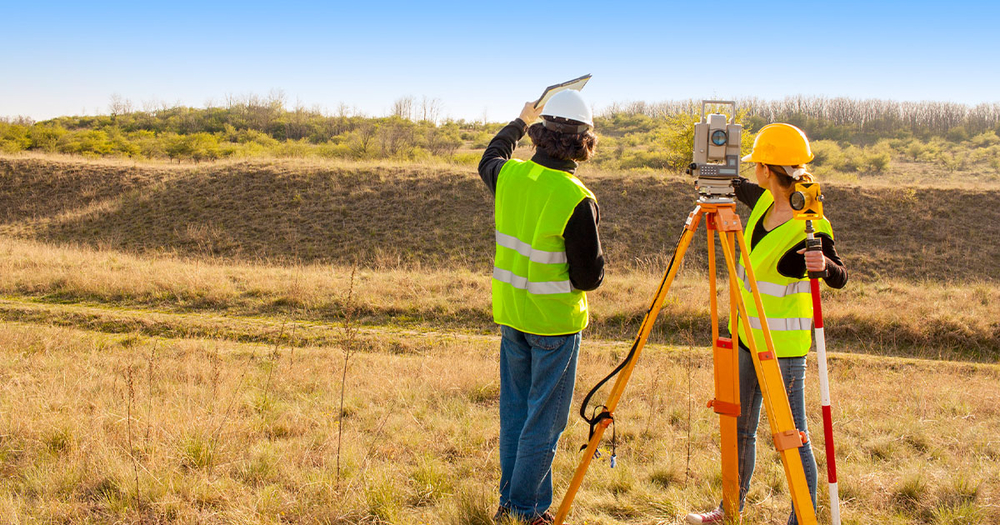Exploring the Terrain: The Manner in Which Survey Offerings Impact Development
In the domain of building, whether it's an innovative dwelling, a commercial building, or large-scale infrastructure projects, the role of surveying services is vital. Surveyors deliver essential data that informs every stage of a project, ensuring precision, conformity, and positive results. From property boundary issues to landform evaluations, understanding the land is vital for making informed decisions that can determine a project.
As real estate developers and entrepreneurs embark on their journeys, they may wonder what will happen during a land survey and the reasons hiring a skilled survey specialist is important. Understanding the different kinds of land surveys, grasping the role of surveying in construction, and understanding how advancements in technology are changing these services can enable stakeholders to protect their investments and boost development strategies. This article investigates the multifaceted world of surveying services and underscores the critical aspects that shape today’s development marketplace.
Essential Reasons to Hire a Certified Surveyor
Engaging a professional surveyor is essential for anyone involved in real estate transactions or development of land. To begin with, surveyors carry the knowledge and know-how to provide correct measurements and appraisals of land boundaries. This accuracy is crucial in avoiding arguments over property lines, which can lead to costly legal battles. With Land Survey Aveley of local laws and regulations, professional surveyors ensure conformity, safeguarding your assets and rights as a property owner.
One more important reason to contract a certified surveyor is their capability to leverage advanced technology. Modern surveying methods, such as GPS and unmanned aerial vehicles, enhance the precision and efficiency of land surveys. These devices allow for extensive data collection and create highly detailed topographic maps that can be invaluable for planners and developers. By employing these technologies, surveyors can provide insights that might not be apparent through standard surveying techniques, ultimately streamlining the development process.
In conclusion, engaging a qualified surveyor can lead to significant cost savings in the future. A thorough and detailed land survey can identify potential issues before construction begins, preventing expensive modifications and delays. Additionally, understanding easements and potential zoning restrictions in advance can help you make wise decisions, optimizing the use of your property while minimizing future headaches. By investing in professional surveying services, you are ensuring the protection of your property interests and ensuring a hassle-free development process.
Comprehending the Assessment Process
The assessment procedure typically begins with meticulous preparation and interaction between the assessor and the property owner. Before any physical assessing takes place, the surveyor gathers necessary information regarding the property, including any existing blueprints, titles, and topographical information. This preliminary stage is essential as it facilitates identify the scope of the survey and any possible challenges that may happen during the on-site work.
Once preparation is complete, the surveyor conducts the on-site assessment using a mix of conventional techniques and new tools. This may consist of calculating lengths, bearings, and elevations, as well as utilizing GPS and unmanned aerial vehicle systems to gather precise data. The surveyor then assembles these measurements into a mapping plan, which provides a visual representation of the land's limits, features, and landform.
After the on-site work is completed, the assessor evaluates the data and prepares the final report. This document offers comprehensive information about the results and often includes legal descriptions of the property, marking key points such as property lines, rights of way, and any potential encroachments. This final outcome serves as a critical resource for landowners, developers, and legal professionals, guaranteeing all parties have a comprehensive understanding of the land's dimensions and attributes.
The Impact of Property Surveying on Property Construction

Land surveying services play a essential role in property construction by providing necessary data that guides planning and design choices. Precise land surveys help developers understand the terrain, limits, and current attributes of a parcel. This information is vital for assessing the feasibility of a project and confirming that designs are aligned with zoning regulations. By spotting potential obstacles and benefits early in the development phase, surveyors assist developers to devise successful strategies that enhance effectiveness and adherence to building standards.
Moreover, the significance of precise surveying is critical when it comes to avoiding land disputes. Boundary surveys clearly outline property lines, minimizing the potential of legal disputes between neighboring landowners. By setting precise boundaries, developers can securely proceed with development projects, knowing that they are working within their entitlements. This certainty fosters trust among interested parties and minimizes the chances of costly legal battles or remediation efforts due to misinterpretations over property lines.
In the context of current property development, technological advancements has significantly improved the efficiencies of land surveying. The integration of Global Positioning System and drones allows for more precise measurements and efficient data collection, resulting in faster turnarounds and greater accuracy. This technological advancement as well as supports conventional surveying techniques but also facilitates new methodologies such as 3D modeling and VR simulations. As a result, developers can see their projects more clearly, leading to better decision-making and improved project outcomes.